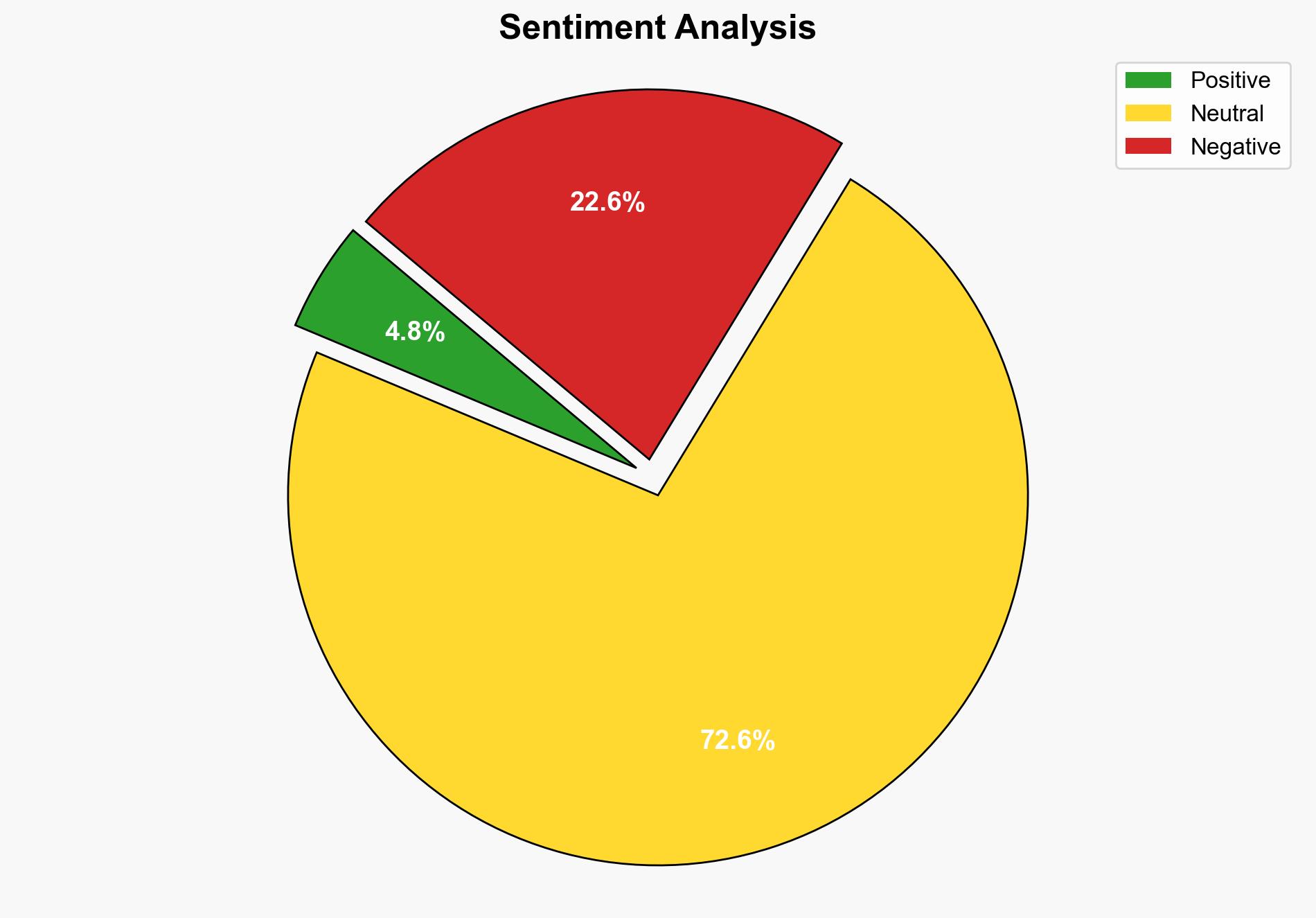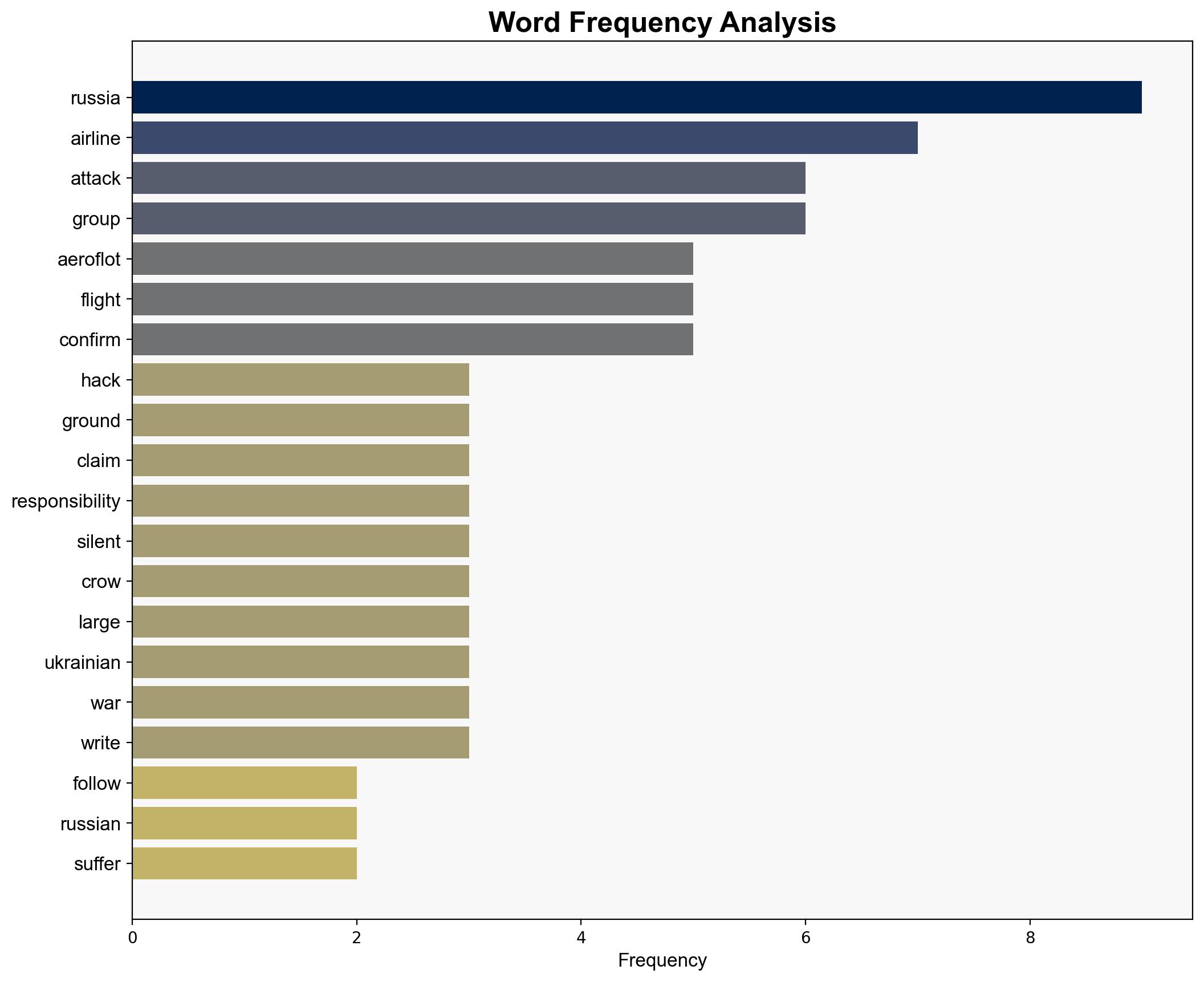Aeroflot hacked – Russia’s biggest airline forced to ground flights following attack – TechRadar
Published on: 2025-07-29
Intelligence Report: Aeroflot hacked – Russia’s biggest airline forced to ground flights following attack – TechRadar
1. BLUF (Bottom Line Up Front)
The Aeroflot cyberattack, claimed by groups Silent Crow and Cyberpartisan, highlights vulnerabilities in Russian critical infrastructure amid ongoing geopolitical tensions. The most supported hypothesis suggests a coordinated cyber offensive by Ukrainian-aligned groups to disrupt Russian operations. Confidence level: Moderate. Recommended action: Enhance cybersecurity measures and monitor for retaliatory cyber activities.
2. Competing Hypotheses
1. **Hypothesis A**: The cyberattack on Aeroflot is a coordinated effort by Ukrainian-aligned groups (Silent Crow and Cyberpartisan) to disrupt Russian infrastructure as part of the broader conflict between Russia and Ukraine.
2. **Hypothesis B**: The attack is an independent operation by hacktivist groups seeking to exploit the geopolitical situation for notoriety and influence, without direct coordination with Ukrainian state interests.
Using ACH 2.0, Hypothesis A is better supported due to the explicit claims of responsibility by groups with known anti-Russian motives and the strategic timing aligned with ongoing conflicts. Hypothesis B lacks direct evidence of opportunistic behavior without geopolitical alignment.
3. Key Assumptions and Red Flags
– **Assumptions**: Hypothesis A assumes a direct link between the cyber groups and Ukrainian interests, while Hypothesis B assumes a lack of state coordination.
– **Red Flags**: The absence of direct evidence linking the groups to Ukrainian state actors raises questions about the true nature of their affiliation.
– **Blind Spots**: Limited visibility into the internal communications and motivations of the hacker groups.
4. Implications and Strategic Risks
The attack underscores the risk of escalating cyber conflicts as a tool of warfare, potentially leading to further destabilization of Russian infrastructure. Economically, it could disrupt air travel and logistics, affecting regional economies. Geopolitically, it may provoke retaliatory measures by Russia, increasing tensions in cyberspace and beyond.
5. Recommendations and Outlook
- Enhance cybersecurity protocols for critical infrastructure, focusing on aviation and transportation sectors.
- Increase intelligence sharing and collaboration with international partners to anticipate and mitigate further cyber threats.
- Scenario-based projections:
- **Best Case**: Strengthened defenses prevent further attacks, stabilizing operations.
- **Worst Case**: Continued cyber offensives lead to significant operational and economic disruptions.
- **Most Likely**: Sporadic cyber incidents continue, requiring ongoing vigilance and adaptation.
6. Key Individuals and Entities
– **Anton Gorelkin**: Mentioned in context, a Russian MP cited in the report.
– **Silent Crow and Cyberpartisan**: Hacker groups claiming responsibility for the attack.
7. Thematic Tags
national security threats, cybersecurity, counter-terrorism, regional focus





